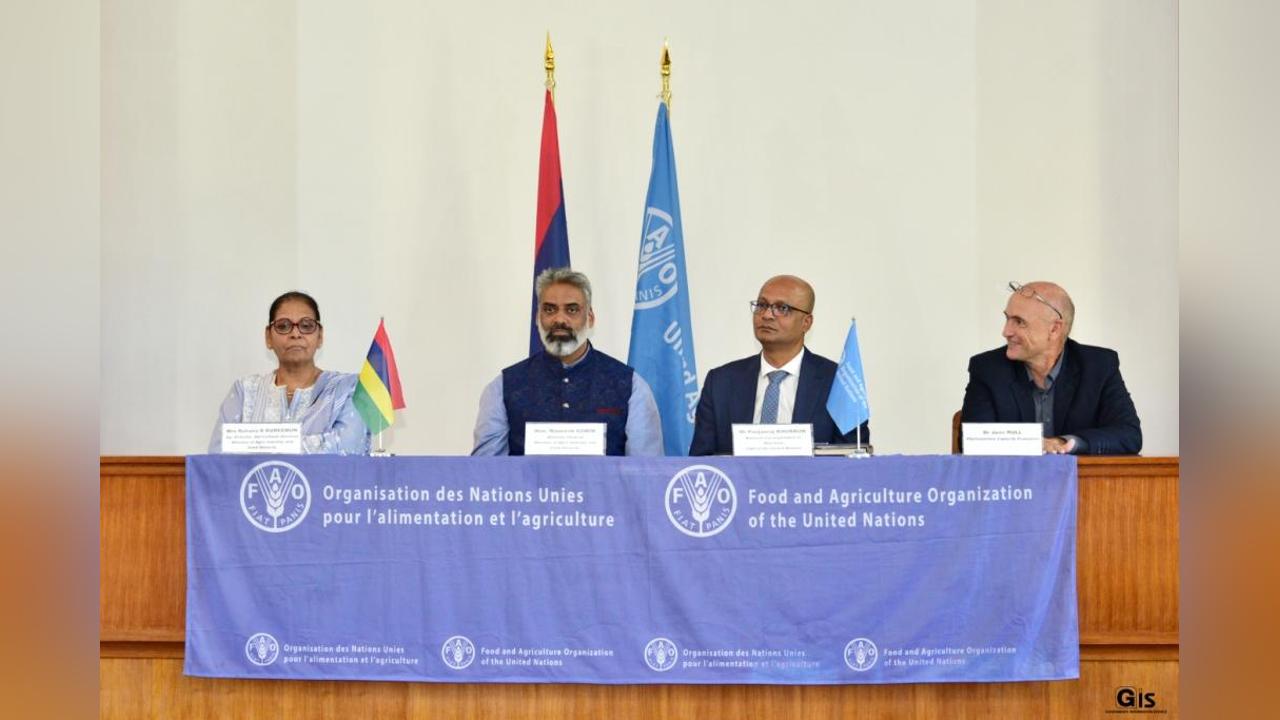Africa-Press – Mauritius. A five-day workshop on Phytosanitary Capacity Evaluation (PCE) under the project “Strengthening food control and phytosanitary capacities and governance”, opened, this morning, at the Mauritius Sugar Industry Research Institute (MSIRI), in Réduit.
The Attorney General and Minister of Agro-Industry and Food Security, Mr Maneesh Gobin, the National Correspondent, Food and Agriculture Organization (FAO), Mr Poojanraj Khurun, and other personalities were present on the occasion.
This project has been funded by the FAO so as to ensure that the National Plant Protection Office (NPPO) is in a better position to address challenges and to establish coordinated action against the spread of pests and diseases that threaten food security.
In his keynote address, Minister Gobin indicated that this training comes at an opportune time when there is a need to improve the service delivery of the NPPO.
“With the increase in trade and movement of people, there is a higher risk of new plant pests and diseases entering the country, which is why some flights are not allowed from Reunion Island to Mauritius at night to prevent the spread of pests,” he added.
This project, Mr Gobin underlined, will help the NPPO to evaluate its capacity to implement international phytosanitary requirements using the PCE Tool of the International Plant Protection Convention (IPPC).
Moreover, the Minister stressed on the importance of importing only processed food, such as processed dates only, not fresh ones, as there might be a possibility that they bring dormant pests, which may proliferate in Mauritius.
On this note, Mr Gobin reiterated the commitment of Government to enhance its food systems and also encouraged merchants to strengthen their export through the widening of external market horizons by being in line with international standards and practices.
For his part, the FAO Correspondent, Mr Poojanraj Khurun, highlighted the importance of paying attention to the quality and safety of food so as to promote food safety as regards health and food’s nutritional value.
Furthermore, he pointed out that strong and well-functioning national food control systems and phytosanitary systems are essential prerequisites to guarantee safe and healthy food to consumers on one hand, and to comply with the World Trade Organization requirements for international trade on the other hand.
“The major challenge that we foresee is to adapt to the multi-sectoral nature of food control systems and it is therefore important that the FAO and the World Health Organization have jointly put in place the Food Control System assessment tools and the Phytosanitary capacity evaluation tool which is imparted to competent institutions to ensure that safer foods do reach consumers,” Mr Khurun added.
The Phytosanitary Capacity Evaluation Tool The PCE will provide a comprehensive review of the Phytosanitary system of Mauritius and will contribute to the efforts of the FAO to achieve its vision and global goal of achieving food security and make sure people have regular access to enough high-quality food to lead active and healthy lives.
The PCE will be carried out in three face-to-face sessions in Mauritius, this being the first mission. At the end of the third mission, a draft strategic plan will be developed based on the weaknesses identified and a logical framework will be developed that can be used to develop and guide projects to overcome the weaknesses.
The IPPC Phytosanitary Capacity Evaluation Tool will be used during the workshop and covers 13 areas of phytosanitary capacity that includes the legislative and regulatory framework, institutional capacity and human resource skills, pest and disease diagnostic capabilities, pest risk analysis, surveillance and pest eradication, inspection systems and points of entry or exit control, export certification systems, and pest reporting capacity.
It facilitates the identification and prioritisation of organisational phytosanitary needs in order to develop strategies and plans to improve export, import and national control.
It also assists the NPPO to assess their phytosanitary capacity needs in relation to the implementation of the rights and responsibilities of the IPPC and the implementation of International Standards for Phytosanitary Measures.
For More News And Analysis About Mauritius Follow Africa-Press







